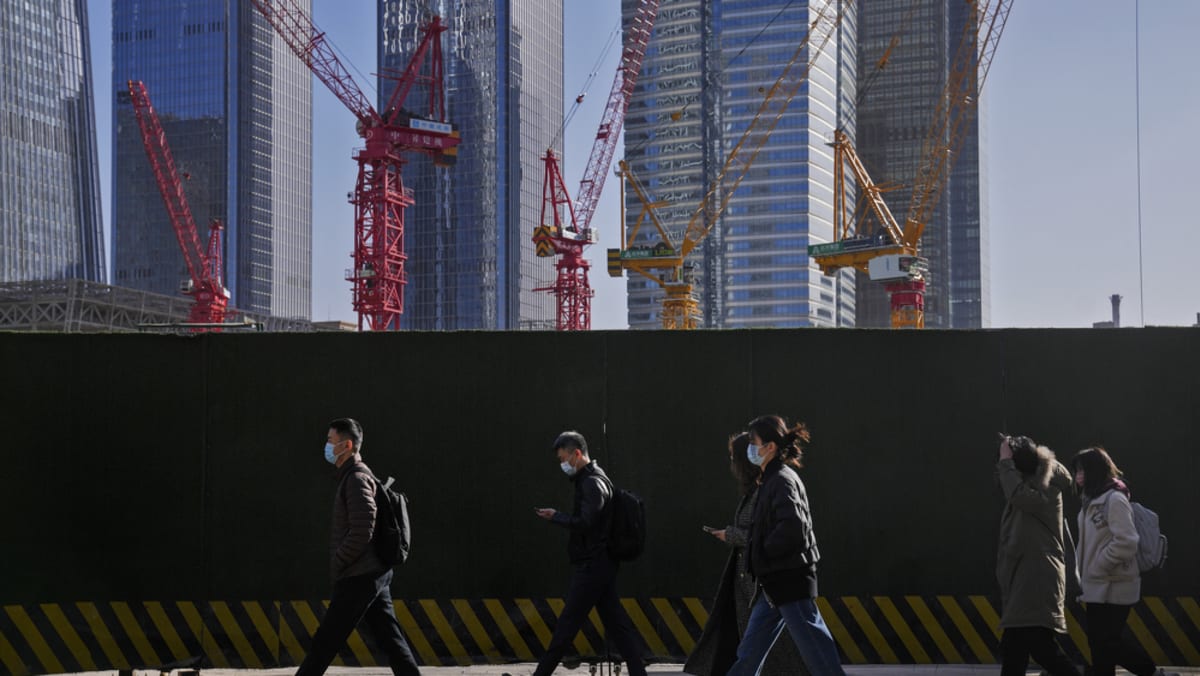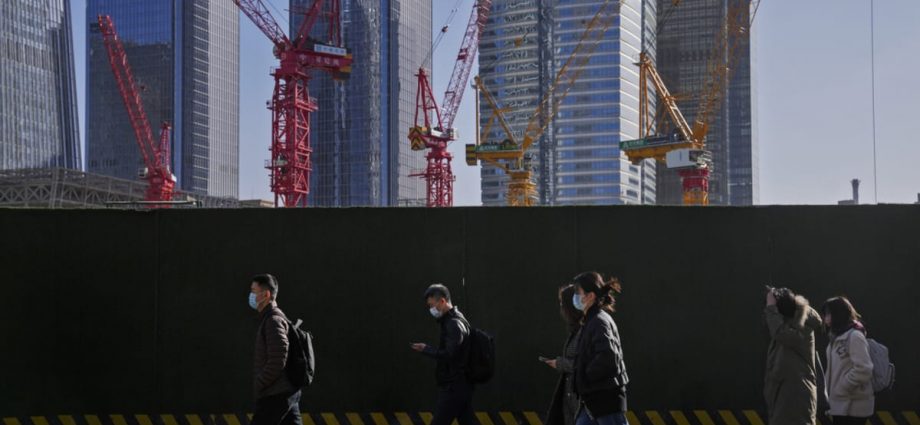
RIDING ON CHINA’S REOPENING
The bank’s semi-annual analysis of the region stated that economic activity in most of developing East Asia and the Pacific has recovered, led by goods exports and private consumption.
China’s economic recovery is expected to rub off on its neighbours. Even as global growth is projected to be lower this year, effects on the region are expected to be partially offset by China’s revival.
“Growth in China, I think, will be the big driver (for regional growth this year),” said Mr Aaditya Mattoo, the World Bank’s chief economist of East Asia and Pacific Region.
“China, which grew by only 3 per cent in 2022, is projected to grow at 5.1 per cent this year, largely on the strength of its strong domestic consumption bounce-back from COVID difficulties.”
The rest of the region, however, having already experienced that rebound last year, can expect slower growth, Mr Mattoo told CNA’s Asia Now.
The report showed that the rest of the region, sans China, will see growth of about 4.9 per cent this year, down from 5.8 per cent in 2022. Domestic demand will likely remain the primary driver, while high inflation looks set to dampen consumption.
RESILIENCE IN THE REGION
Among the findings of the study is that East Asia and Pacific economies have collectively grown faster and more stable than almost any other region in the world, including the advanced economies, since the Asian financial crisis of 1997.
But despite the successes, the pace of catching up to high-income economies has stalled in recent years, with declining productivity growth.
“That (fast and stable growth) was a remarkable success,” said Mr Mattoo.
“But we didn’t see big structural reforms and that is why productivity growth, this rapid catch-up with high-income countries, had already stalled even before COVID struck.”
A “series of shocks” continues to hamper the narrowing of the gap between advanced and developing economies, he said, citing the COVID-19 pandemic, Russia’s invasion of Ukraine, and inflationary pressures intensifying financial tightening.
MAIN CHALLENGES
The retreat from globalisation is an immediate challenge to economies in the region, Mr Mattoo said.
“A lot of the growth in this region came in a world where markets were open, integrated and governed by predictable trade rules. Now, there’s a retreat from globalisation,” he said.
“Trade divisions and uncertain political factors are creating broader uncertainty, which we think is ultimately going to be a problem for growth through trade.”
Other issues facing regional growth are a rapidly ageing population and climate change.
“Looking ahead, this confluence of slowing growth, multiplicity of shocks and looming challenges … we fear it could seriously hurt growth in the region unless there is a deep reassessment of the reform path,” Mr Mattoo said.
The report outlined four policy actions the World Bank said are necessary to mitigate risks and boost growth – macro-financial reforms, structural reforms, climate-related reforms, and international cooperation.
INTERNATIONAL COOPERATION
With various challenges casting a shadow over growth prospects for the region, Mr Mattoo said countries cannot tackle global stresses alone.
He said individual countries in East Asia and the Pacific, even the world’s fourth most populous nation Indonesia, cannot individually resolve problems created by international trade tensions, dictate its own climate, or turn back the clock on the global phenomenon of an ageing population.
“The highest priority is domestic reform – reform of your own trade policies in both goods and services – as we have already begun to see in the region,” he said.
“I think services reform has to be key to productivity growth because a lot of people are leaving agriculture and manufacturing. They are going into services. Better, more productive services are also good for productivity in other sectors of the economy.”
To do that, he said the region must wean off protectionism and open up its services sector.
“Technological change is transforming services sectors from retail to transport to finance. To harness that technological change for the collective benefit, the region needs to grasp the matter of services reform.”
When it comes to ageing, Mr Mattoo said there is a need for deeper fiscal rethink, with states playing bigger roles for social protection and laying foundations for inclusive growth, such as building better infrastructure or investing in education and health.
He emphasised the region – both a contributor and a victim when it comes to global warming – must do its part to reduce carbon footprint, manage risks, and invest in adaptation.

